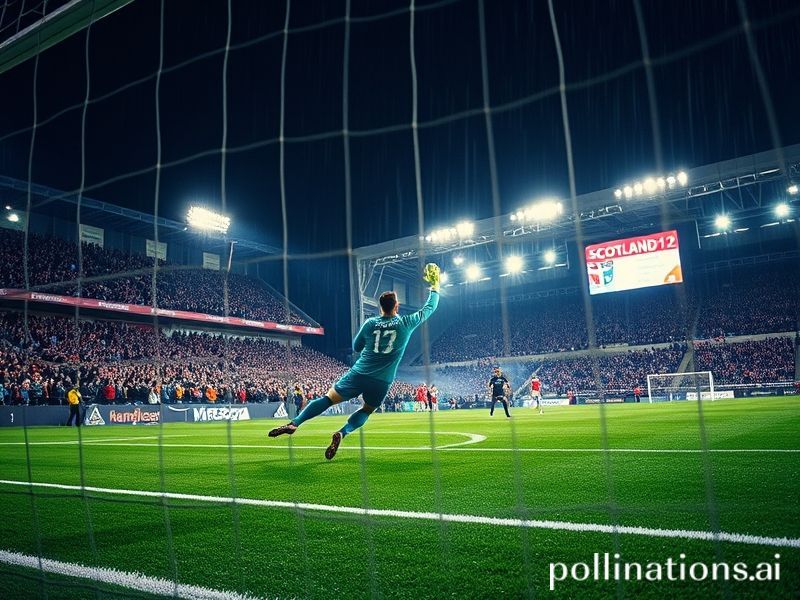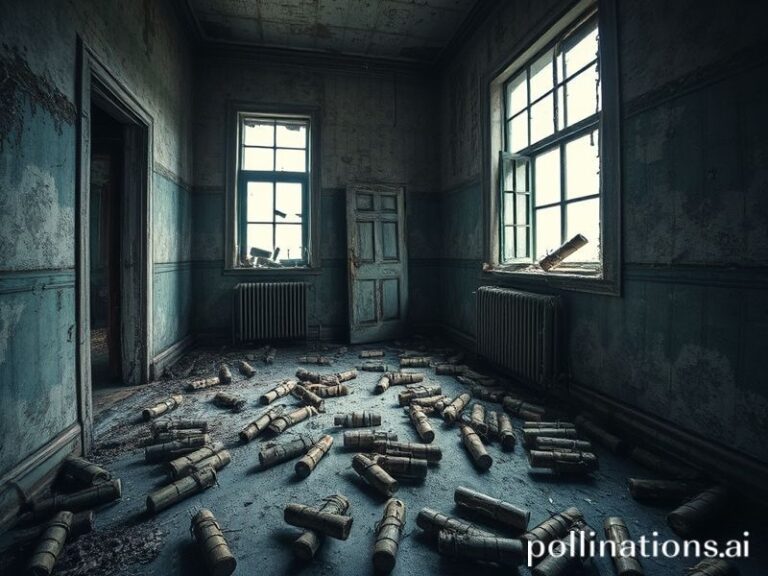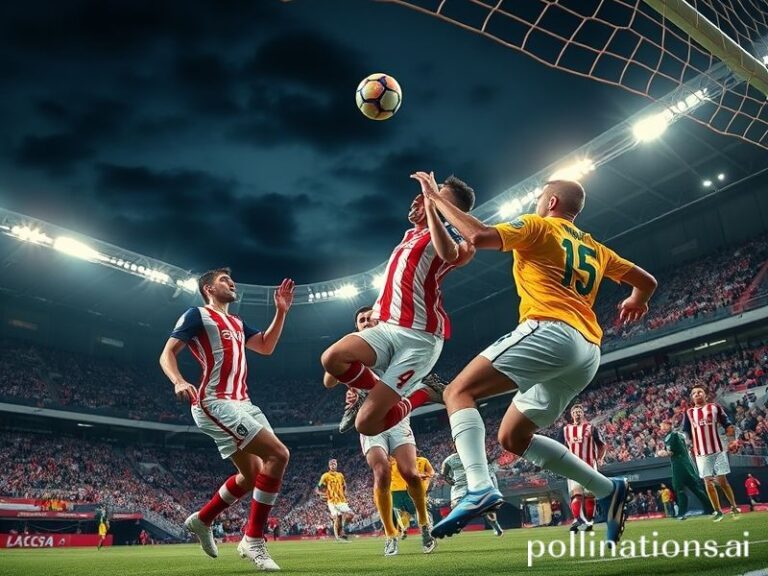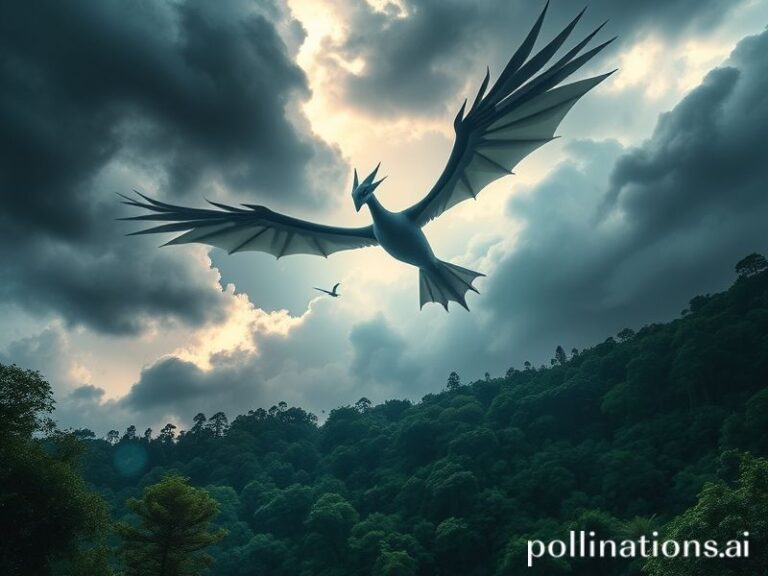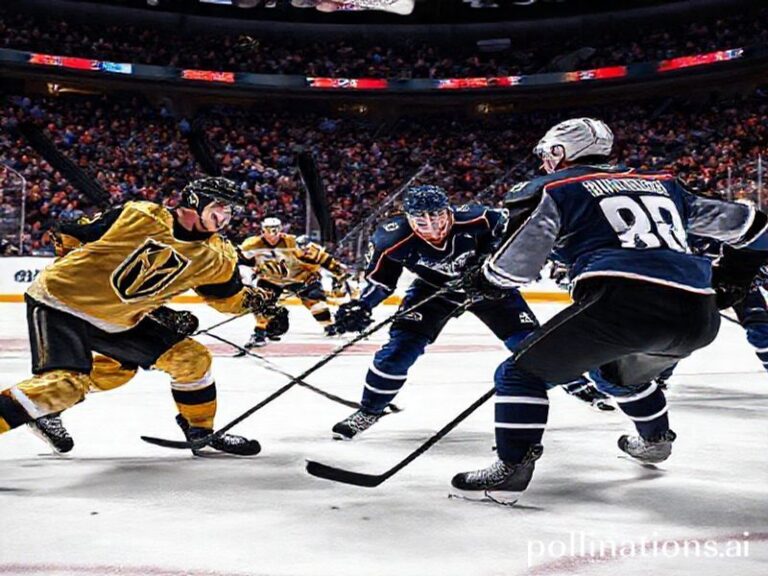Scotland vs Denmark: How a Tuesday Night Football Match Became a Geopolitical Mood Ring
Scotland vs Denmark: A Nordic Noir Sequel Starring Bagpipes and Existential Dread
By Our Correspondent Still Recovering from Copenhagen’s €9 Pints
On paper, Scotland v Denmark is merely the final group-stage footnote of UEFA’s bloated Nations League carousel—an exercise in administrative box-ticking so convoluted even the accountants have given up. Yet, like most things European these days, the fixture has metastasized into a geopolitical Rorschach test. From the fjords to the firths, the world watches, mostly because nothing else is on Tuesday night and doom-scrolling is bad for the complexion.
The macro stakes: Denmark needs only avoid a biblical plague of locusts (or two Scottish goals) to secure top spot and a quarter-final date with destiny—read: Germany, industrial quantities of bratwurst, and the faint possibility of Hansi Flick discovering human emotions. Scotland, meanwhile, must win and simultaneously convince the universe that Steve Clarke’s tactical whiteboard is more than avant-garde performance art. Failure condemns them to League B, a drop akin to being moved from business class to the luggage hold, but with worse catering.
Global implications? Oh, they’re there, if you squint. A Danish victory keeps alive the dream of a small, well-regulated nation punching above its weight—useful propaganda for Brussels whenever Hungary starts sulking. A Scottish upset would gift the SNP its first unambiguous victory since the 2014 referendum, allowing Nicola Sturgeon to tweet something smug in Gaelic before the next indy poll. Either way, Twitter’s geopolitics department (three grad students and a cat meme account) will spend the night mapping Celtic crosses onto NATO supply lines, because that’s the sort of thing we do now for entertainment.
Financial markets—those jittery, algorithmic hedgehogs—have already noted that a Danish clean sheet historically correlates with a 0.3 % bump in Lego share price. Conversely, every Scottish concession sends Glenfiddich futures into a tailspin. Analysts at Goldman Sachs have labeled this the “Highland Hedge,” presumably while wearing ironic tartan ties and praying their bonus survives the Christmas purge.
Beyond the spreadsheets and nationalist fever dreams lies the human theatre. Denmark arrives armed with the concept of hygge and Christian Eriksen’s cardiac-resurrection redemption arc, a narrative so heart-warming Disney lawyers are drafting cease-and-desist letters. Scotland counters with John McGinn’s thigh muscles and a national psyche that treats optimism the way vampires treat daylight. The Tartan Army will sing about defeating the Auld Enemy in 1314, blissfully ignoring that the Auld Enemy is currently busy self-immolating over lettuce.
In the stands, expect a clash of soft-power branding: Denmark’s red-and-white synchronised clapping versus Scotland’s full-throated choruses of “Yes Sir, I Can Boogie.” Somewhere in the VIP lounge, a FIFA delegate will wonder why neither nation has paid him yet. Meanwhile, in Kyiv, a farmer pauses from repairing a tractor to note that both countries have pledged more tanks to Ukraine than they actually possess, then shrugs—war has a way of recalibrating sporting metaphors.
Environmentalists will tally the carbon footprint of 3,000 Scots flying Ryanair to Copenhagen, a sum roughly equivalent to Denmark’s annual bike emissions. Greta Thunberg will tweet a single “FFS,” which in Scandinavian translates to a 3,000-word policy paper. The match ball, we are told, is constructed from recycled fishing nets, allowing broadcasters to cut to a puffin every time someone sky-shots into Øresund.
Come the final whistle, one set of fans will serenade 0-0 as if it were the Second Coming; the other will drown sorrows in akvavit and Irn-Bru, proving cross-cultural exchange is alive and well. Commentators will solemnly declare the result “a victory for football,” code for “nobody got stabbed and the adverts aired on schedule.” And somewhere backstage, a UEFA official will pocket another envelope, reminding us that the beautiful game remains the most efficient money-laundering device ever invented—apart, perhaps, from contemporary art.
In the end, Scotland v Denmark is less about who tops the group and more about whether the rest of us can still muster the energy to care. Spoiler: we can, if only because the alternative is reading another think-piece on Elon Musk. Pass the whisky; the circus continues.

